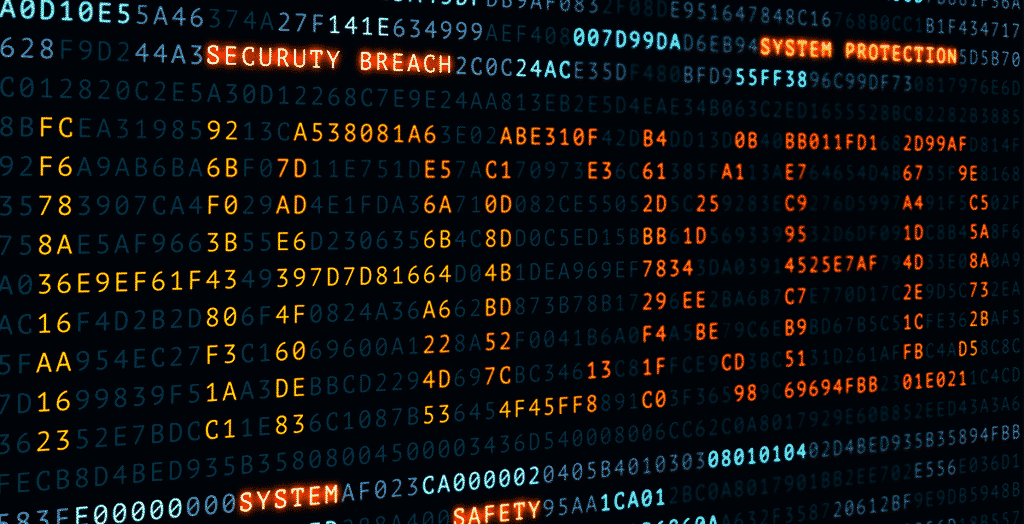
3 questions for Jean-Sylvain Chavanne, new Director of the Western France Cyber Defence Agency of the CEIS
The Security Operations Center (SOC) based in Brest is CEIS’* Cyber Risk Management solution to support small and midsize businesses in the area of digital security and cyber attacks. It offers attack detection and security management based on the level of risk, with solutions tailored to the needs and budget of each company.
Jean-Sylvain Chavanne holds a master’s degree in private law and criminal science, as well as a master’s degree in cybersecurity science from ITESCIA (I-management school). He spent six years at the Agence Nationale de la Sécurité des Systèmes d’Information (ANSSI) as digital security delegate for the Pays de la Loire region. He also teaches at the Economic Warfare School of Paris, the University of Paris Dauphine and the CNAM. He wrote the Economic Intelligence manual published by PUF Editions and has educated Lemer Pax employees about cyber threats.
You met with us twice when you were the ANSSI’s delegate in Pays de la Loire. Today, you are heading up a Security Operations Center in Brest. What services could you offer a company like Lemer Pax in terms of information system security to prevent cybercrime?
Lemer Pax is attentive to these issues. I realized this when I came to educate your employees about the different types of attacks. You have an IT policy with a section dedicated to security, your sales representatives know how to protect their systems, especially when travelling, and you have also trained your employees to use best practices when foreign delegations visit your headquarters. Ronan Epiard, the System and Network Security Administrator, has implemented the appropriate procedures.
Lemer Pax’s maturity in dealing with these cybersecurity issues is, in this respect, well above average. But for all that, total protection against intrusions does not exist. The threats are constantly changing, and so are countermeasures. CEIS* is a strategy and risk management consulting firm that is expanding to offer solutions for the operational management of cyber risks and a new dedicated team called CEIS Cyber Defence.
Lemer Pax’s maturity in dealing with these cybersecurity issues is,
in this respect, well above average.
For instance, if Lemer Pax is planning to export to a country vulnerable to potential cybercrime attacks, we could pose as a subcontractor in the country’s nuclear industry to test how quickly the detection team can respond to a threat. The objective is to prepare and train the personnel concerned using a concrete but virtual case, before the attack is launched. Upstream training is always more productive than providing the results of simple intrusion tests.
Our Cyber Threat Intelligence (CTI) unit studies the modus operandi of potential attackers to assess the risk of an attack from a given country and sector. In terms of accurate information, this is very valuable for the client. We cross-reference a huge amount of data thanks to meticulous investigative work carried out by our geopolitical specialists, analysts and linguists who speak Russian, Arabic or Chinese. These people have the technological and digital expertise to deliver our solutions in the area of cyber defence. Then, we provide our client with a complete report indicating the vulnerabilities in their system and the low, medium and high security risks. The client can prioritize the threats and draw up a new roadmap.

More generally, what solutions do you offer to small and midsized companies?
CEIS’ choice in Brest is clearly to put people into the process. We don’t offer automated defence systems. We use digital technology and human expertise in tandem to analyse the vulnerability of our clients. When we test the robustness of a company’s network, we look at the threats specific to their business sector. Our analysts bring additional expertise and a special awareness of these issues. The SOC (Security Operations Center) in Brest retrieves our clients’ logs and analyses them in real time to raise alerts if abnormal behaviour is observed. We work in all sectors, including industry, defence, maritime, agri-food, healthcare and more! Another advantage is that Brest has an attractive ecosystem with excellent engineering schools, the University and the long-time Telecommunications presence in the region.
In this ecosystem, we and our partner Diateam co-founded an operational training centre, which models attack typologies, to train the CISOs and CIOs of clients to handle cyber attacks on a simulator. Bluecyforce is France’s leading professional training and practical cyber defence training organization. They offer training courses ranging from half a day to 5 days, simulating cybersecurity incident scenarios. Because a 100,000 euro software program with no one running it will always be less effective than a 1,000 euro program if you have a trained team at the controls, hence the importance of people in addition to technology. A threat you anticipate will cost ten times less than one you don’t. We don’t offer pre-packaged solutions, we tailor our solutions on a case-by-case basis. Tell me how your information system works, we will model it and bring you to our site for training. Our clients include the Ministry of the Armed Forces, ANSSI and large private corporations.
We work in all sectors, including industry, defence, maritime, agri-food, healthcare and more!
Have French companies understood the seriousness of cyber threats?
Today, companies are beginning to understand the threat of cyber risk. In Pays de la Loire, recently, a large agri-food company was targeted by an attack that severely disrupted its business. In the same area, another flagship of the agri-food industry suddenly realized that they obviously had to take action to prevent a potential attack. There is always a ripple effect. If your neighbour is burglarized, you immediately decide to install a security system. We support companies that have become aware of this risk as they mature. An additional difficulty, for us, is that cyber security doesn’t generate a return on investment, but neglecting it is not a good idea.
Business owners must be aware of the cyber risk, especially when they export products. For a company like Lemer Pax, it is important to carefully analyse the risks inherent in their rapid growth, in addition to other previously identified risks, and to assess them in light of the attackers’ new modus operandi. In other words, if you don’t focus on cyber threats, they will focus on you. Insurance companies have understood this.
In other words, if you don’t focus on cyber threats, they will focus on you.
*CEIS: Compagnie Européenne d’Intelligence Stratégique









